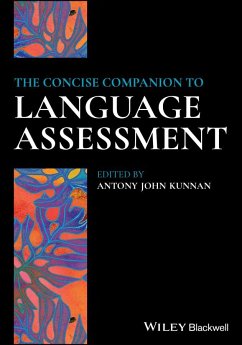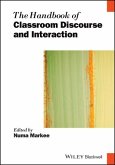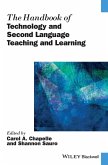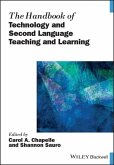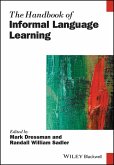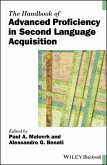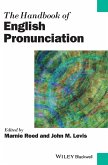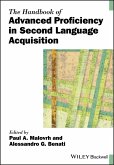The Concise Companion to Language Assessment provides a state-of-the-art overview of the crucial areas of language assessment, teaching, and learning. Edited by one of the foremost scholars in the field, The Concise Companion combines newly commissioned articles on innovations in assessment with a selection of chapters from The Companion to Language Assessment, the landmark four-volume reference work first published in 2013.
Presented in eight themes, The Concise Companion addresses a broad range of language assessment methods, issues, and contexts. Forty-five chapters cover assessment conceptualization, development, research, and policy, as well as recent changes in language assessment technology, learning-oriented assessment, teacher-based assessment, teacher assessment literacy, plurilingual assessment, assessment for immigration, and more.
Exploring the past, present, and future possibilities of the dynamic field, The Concise Companion to Language Assessment:
_ Contains dedicated chapters on listening, speaking, reading writing, vocabulary, pronunciation, intercultural competence, and other language skills
_ Describes fundamental assessment design and scoring guidelines, as well as advanced concepts in scenario-based assessment and automated performance scoring
_ Provides insights on different assessment environments, such as classrooms, universities, employment, immigration, and healthcare
_ Covers various qualitative and quantitative research methods, including introspective methods, classical reliability, and structural equation modeling
_ Discusses the impacts of colonialism and discrimination on the history of language assessment
_ Explores the use of AI in writing evaluation, plagiarism and cheating detection, and other assessment contexts
Sure to become a standard text for the next generation of applied linguistics students, The Concise Companion to Language Assessment is an invaluable textbook for undergraduate and graduate courses in applied linguistics, language assessment, TESOL, second language acquisition, and language policy.
Presented in eight themes, The Concise Companion addresses a broad range of language assessment methods, issues, and contexts. Forty-five chapters cover assessment conceptualization, development, research, and policy, as well as recent changes in language assessment technology, learning-oriented assessment, teacher-based assessment, teacher assessment literacy, plurilingual assessment, assessment for immigration, and more.
Exploring the past, present, and future possibilities of the dynamic field, The Concise Companion to Language Assessment:
_ Contains dedicated chapters on listening, speaking, reading writing, vocabulary, pronunciation, intercultural competence, and other language skills
_ Describes fundamental assessment design and scoring guidelines, as well as advanced concepts in scenario-based assessment and automated performance scoring
_ Provides insights on different assessment environments, such as classrooms, universities, employment, immigration, and healthcare
_ Covers various qualitative and quantitative research methods, including introspective methods, classical reliability, and structural equation modeling
_ Discusses the impacts of colonialism and discrimination on the history of language assessment
_ Explores the use of AI in writing evaluation, plagiarism and cheating detection, and other assessment contexts
Sure to become a standard text for the next generation of applied linguistics students, The Concise Companion to Language Assessment is an invaluable textbook for undergraduate and graduate courses in applied linguistics, language assessment, TESOL, second language acquisition, and language policy.

